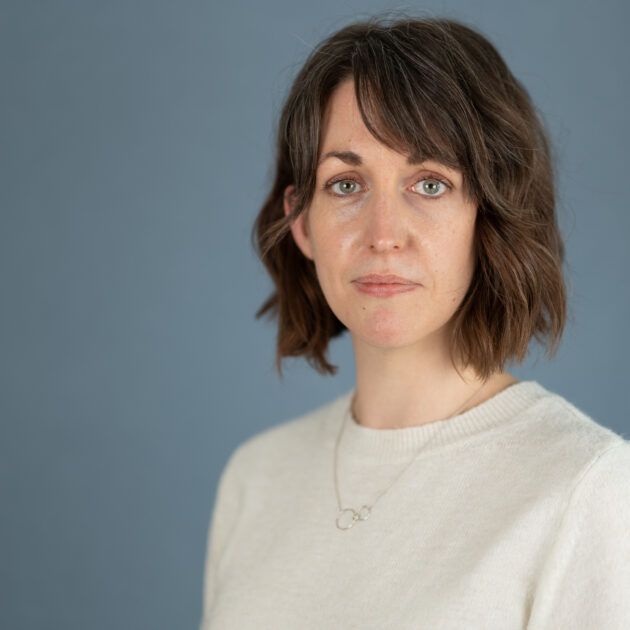
Through our ‘ethical lens for HS and Foresight’ project we are adapting current or creating new HS and foresight tools to help policymakers embed ethics into their work within the time and budget they have available.
The 2024 Dubai Future Forum, held in the iconic ‘Museum of the Future’ provided us with a perfect opportunity to test the moral deliberative tool (MDT) we are developing. The MDT, which builds upon work undertaken by Associate Professor Federica Lucivero is essentially a way to encourage workshop participants to appraise the moral plausibility of how an innovation could be adopted through the exploration of ethically grounded scenarios.
Federica, who is currently working with us as part of a BRAID Fellowship was in Dubai with me, alongside Sophia McCully (NCOB) and Harry Farmer (Ada Lovelace Institute) to pilot our MDT. Together, we invited 12 conference attendees to participate in our experiment. Splitting into two groups with half taking part in a standard scenario workshop and the other half using the MDT. After 90 minutes apart we brought everyone back together to explain what we had just done and why. Our aim was to observe any differences between the groups and to seek their expert Futurist feedback on how the method and facilitation felt.
With regards to our observations, I joined Harry in the control group. It was a fruitful conversation with our participants keen to discuss issues such as equity and public trust. However, with the scenario framed as it was, factual, succinct and with one end timepoint, the topic exploration was often lacking in depth and had a narrow viewpoint. The resultant policy recommendations lacked nuance.
Sophia and Federica facilitated the MDT group. They presented techno-ethical scenarios to their participants. They were given the same information, but it was placed within a detailed timeline and featured quotes from the parties who were impacted by events. This group took more time to explore multiple viewpoints, and they sought to understand why someone reacted as they did. Their policy recommendations utilised a higher degree of governance levers to tailor approaches for different circumstances.
When it came to participant feedback, the control group told us they felt they had covered the general bases, but a richer discussion was out of their reach. They also said there was a reliance on them to inject their own experience and case studies so, this made them somewhat of a feature and, at times, that was not appropriate or helpful.
For the MDT group, they told us that having experiences presented to them in real voices made the impact more tangible and easier to empathise with. There also tended to be no group lead, they moved as one and they said that being able to imagine the people you were creating policies for gave them a ‘north star’ to aim for.
So, there were some clear benefits seen and reported by the use of the MDT. However, we also noticed some room for improvement. First, the scenarios used within the MDT need to be significantly longer to carry the additional parameters and discussion points. This meant our participants struggled to digest and respond to them within a standard workshop timeframe. We need to unpick how we tackle this as policymakers have told us time is often limited. Thus, extending the time it takes to run a scenario workshop would not meet their needs.
And second, by the MDT scenarios being more descriptive there was a risk that they overly guided or steered the participants. Indeed, one person told us they felt the scenario left little more to say. We need to run this experiment again with different participant groups to see if having a higher diversity of expertise would address this issue.
As we leave 2024 and look ahead to 2025, we are mapping where we go from here. During 2025 we plan to continue developing, piloting and socialising our MDT – posing a new way to deliver and facilitate ethically grounded scenario workshops. We believe this will assist in the creation of policies that better reflect public values and priorities. And by doing this, policies can garner a higher degree of public trust.
If you are interested in hearing more or would like to collaborate, please contact us on futures@nuffieldbioethics.org.
If you would like to read more about our MDT pilot in Dubai, please see our ‘Facilitation reflections report’.